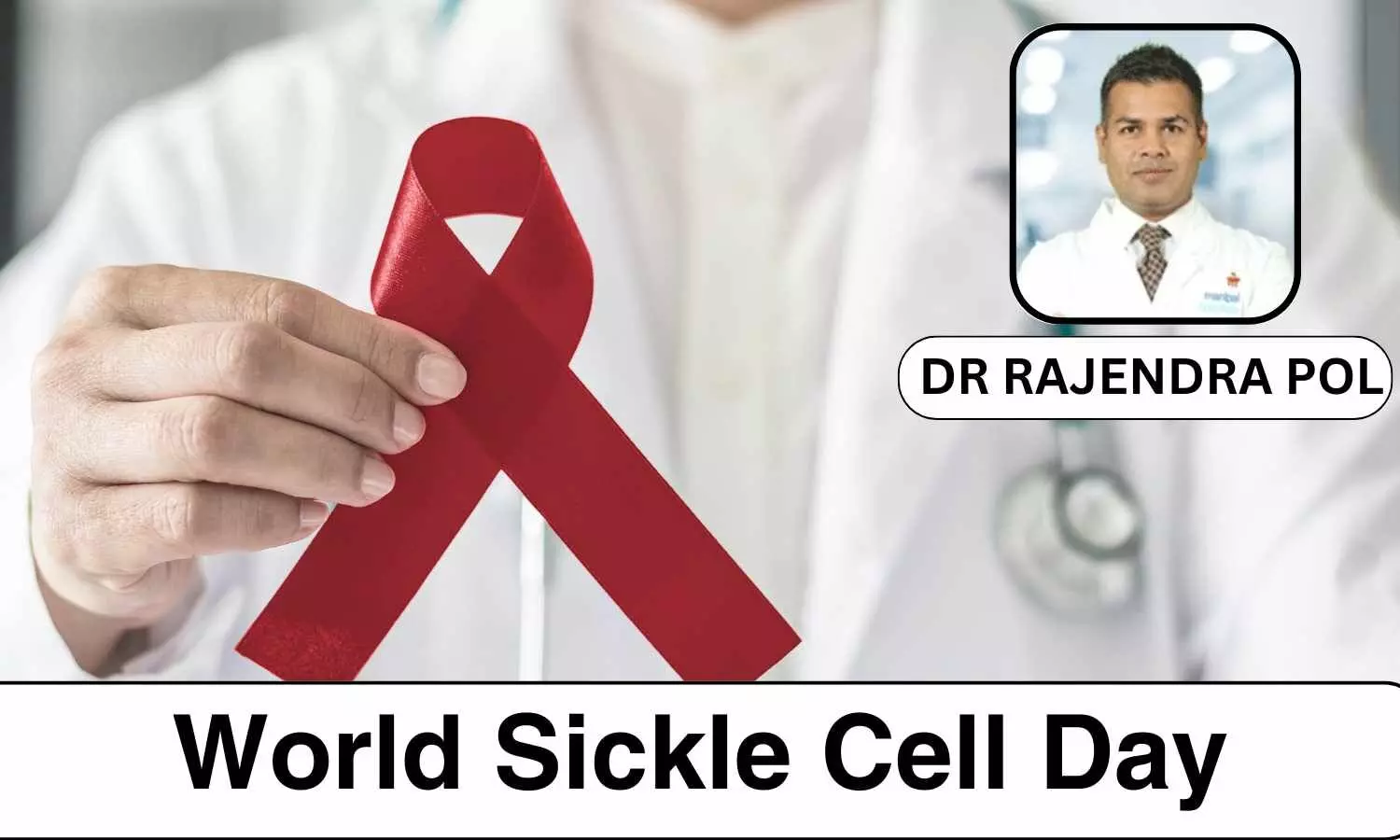World Sickle Cell Day: All you need to know about Sickle cell - Dr Rajendra Pol

June 19 is officially designated as World Sickle Cell Awareness Day. The international awareness day is observed annually to increase public knowledge and an understanding of sickle cell disease, and the challenges experienced by patients and their families and caregivers. This year’s global theme is "Hope Through Progress: Advancing Care Globally."
As World Sickle Cell Awareness Day approaches, we remember the importance and potency/effectiveness that speaking with one voice has when setting priorities to advance Sickle Cell Care globally.
This date, recognized by the United Nations and the World Health Organization, serves as a crucial reminder of the daily challenges faced by those living with Sickle Cell Disease and the urgent need for action.
Because people with sickle cell disease are at an increased risk of infection and other health problems, vaccination is especially important. Common illnesses such as influenza can quickly become dangerous for a person with sickle cell disease.
Persons with sickle cell disease should receive all age-appropriate vaccinations. As people with sickle cell disease are at increased risk of some specific infections, they will need additional vaccine doses:
1. Pneumovax is given because it gives greater protection against several bacterial types that cause pneumococcal infection. A booster dose is given every five years thereafter and right through adulthood.
2. Meningitis ACWY vaccine to prevent meningitis.
3. Haemophilus influenzae type B (Hib) vaccine
4. Influenza (Flu) vaccine. It is recommended that people who do not have good immunity and prone to getting infections easily should be offered a flu vaccination every year. Getting the flu virus can be hazardous in those with sickle cell disease, and this vaccination is highly recommended.
5. Hepatitis B vaccination.
Family planning in Sickle cell disease
Sickle cell disease does not seem to affect the fertility of women. However, it can cause problems during pregnancy and childbirth, so it is important that pregnancy is well planned
Couple should have some tests to see if t are at risk of having a child with sickle cell disease by blood tests and genetic testing and counselling
Effective contraception methods should be used. Instead of OCP Pills, medicines with only progesterone or low estrogen content pills are preferred. For men, condoms have to used if they are on hydroxy carbamide medication for sickle cell anaemia.
If you and your child’s biological father are both carriers, then there is a 1 in 4 (25%) chance
your child will inherit sickle cell disease.
It is a high risk pregnancy, hence pregnancy and delivery should ideally be managed in a tertiary care centre with obstetricians, haematologists and neonatologists.


